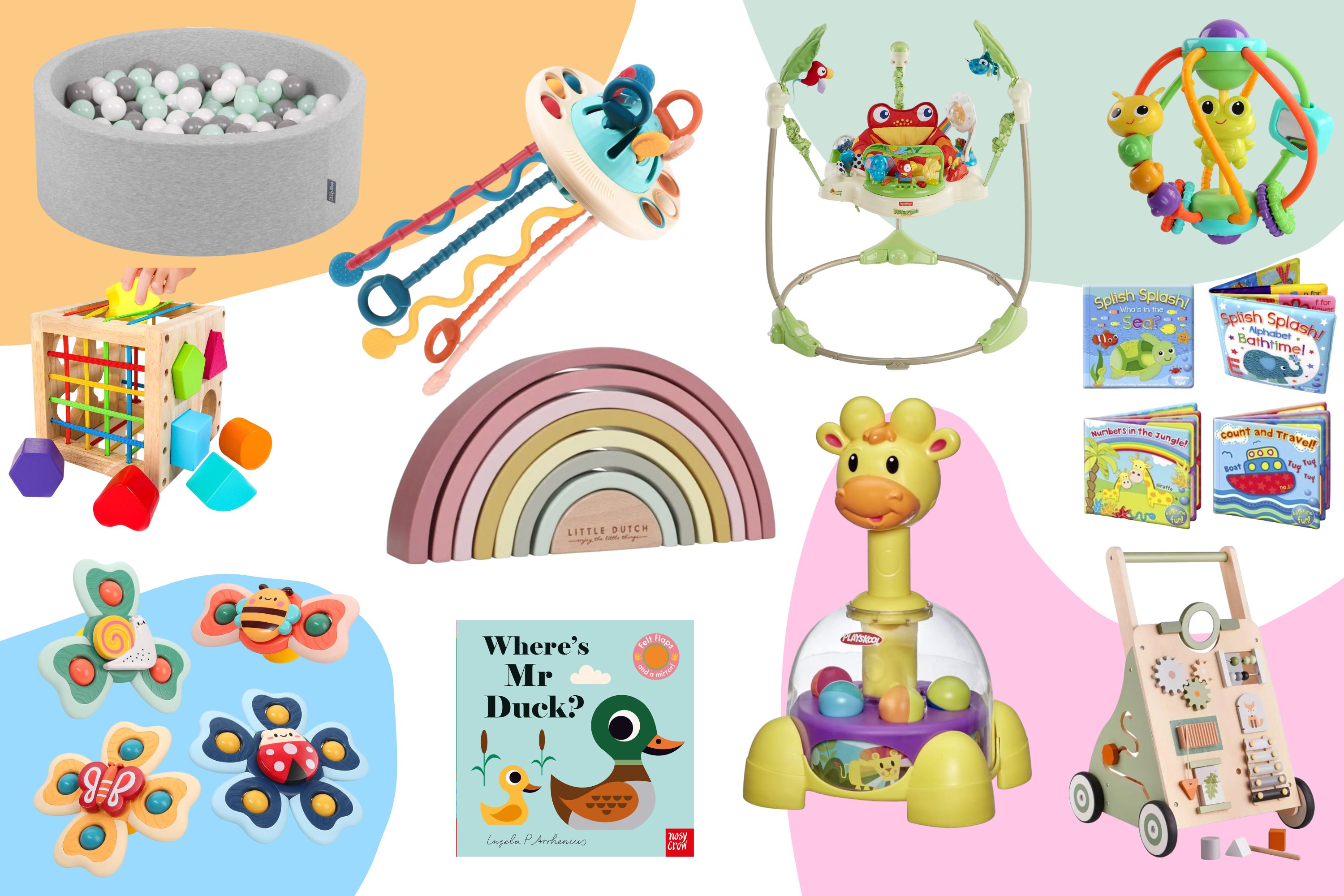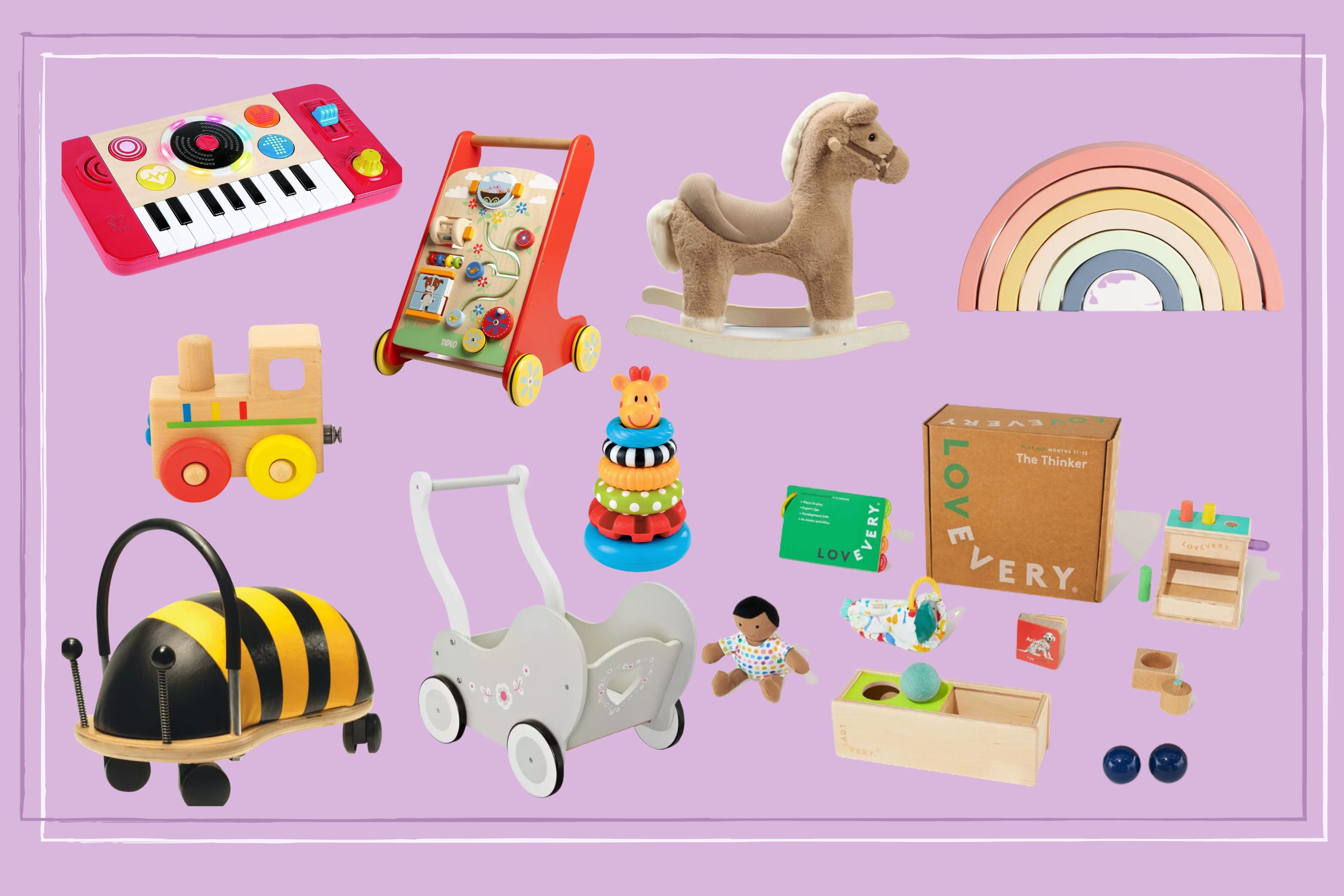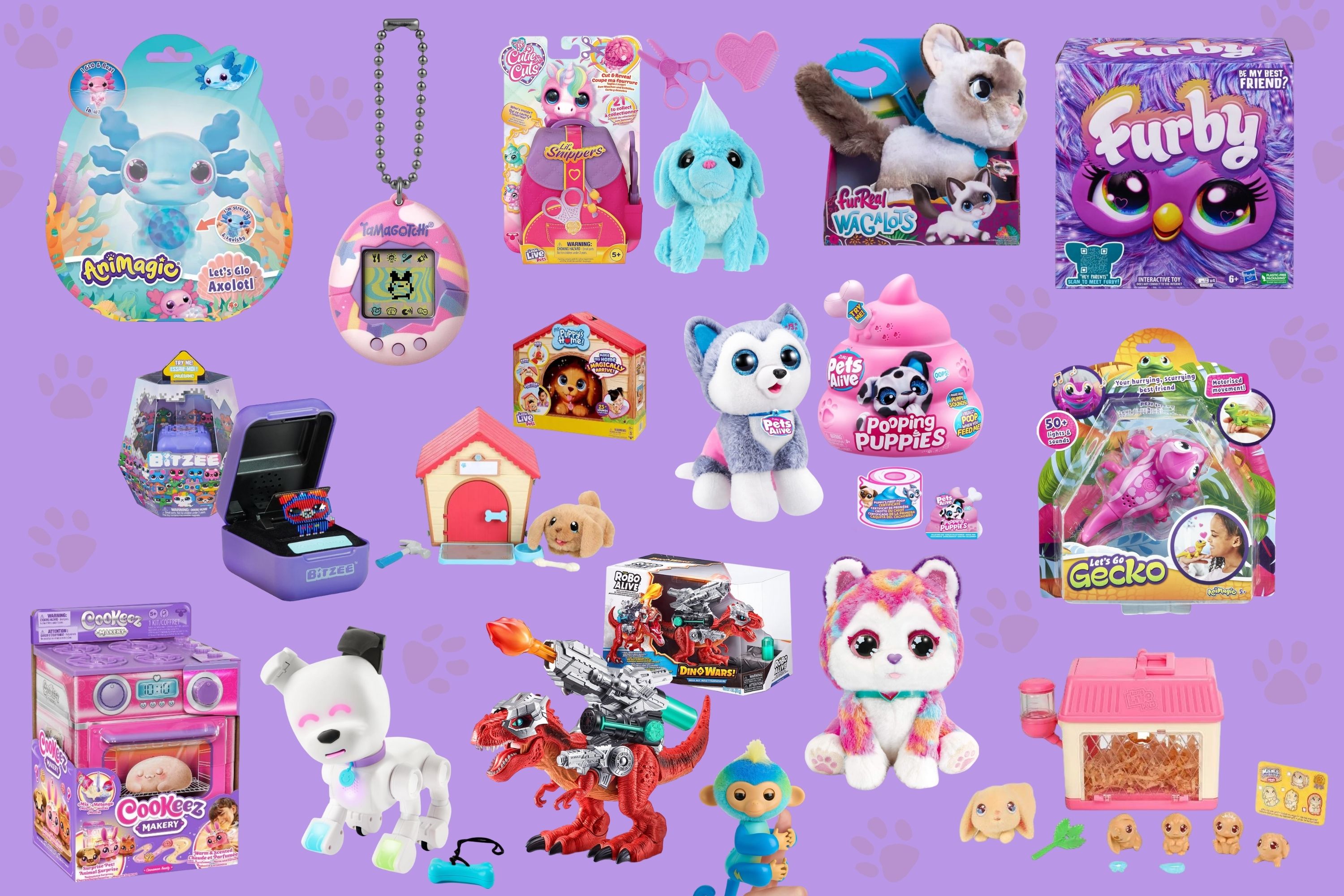Sick of telling your kids to 'go and play'? They don’t know how to, says child development expert
Play is a learned trait - try these 10 tips to boost play skills,

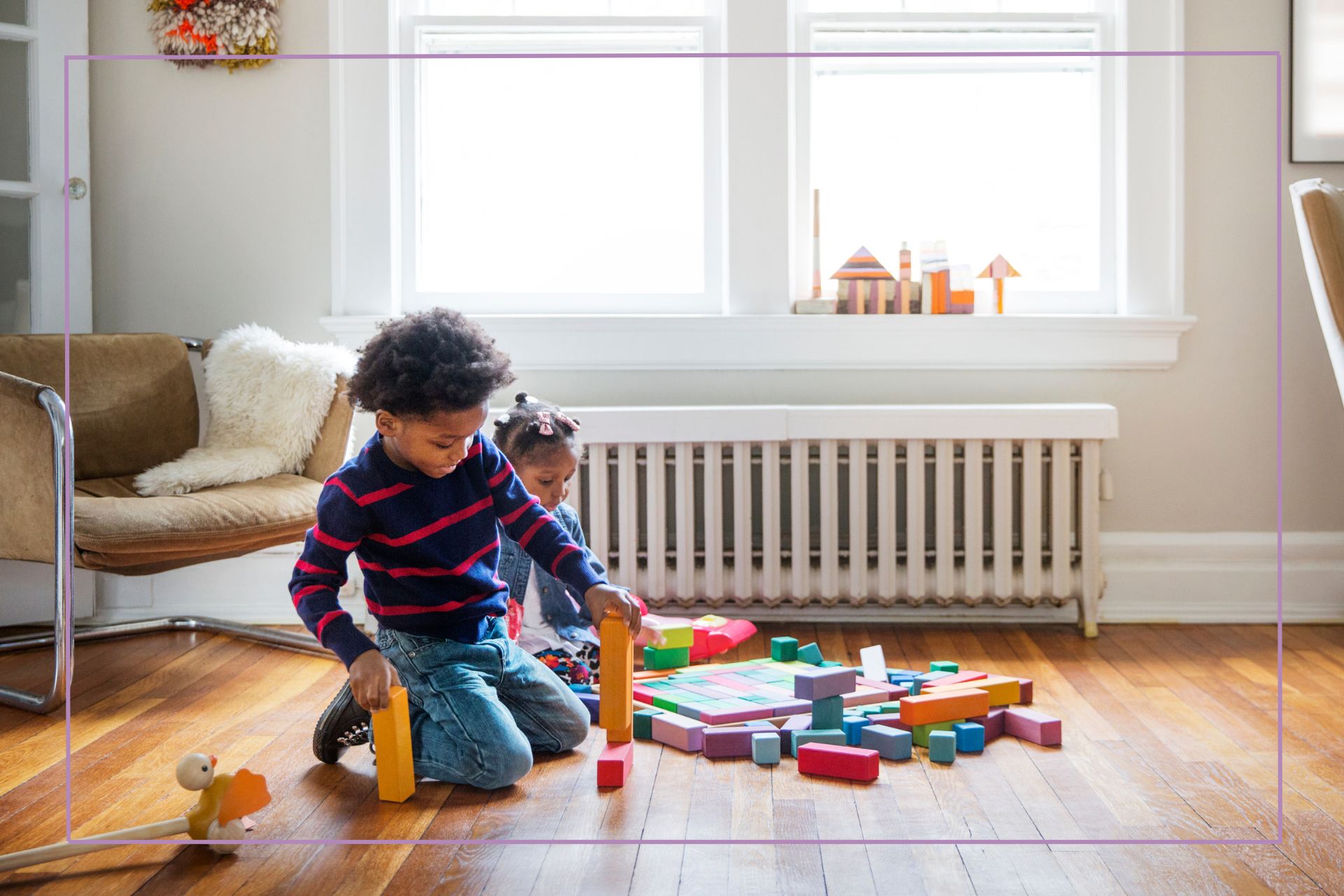
Parenting advice, hot topics, best buys and family finance tips delivered straight to your inbox.
You are now subscribed
Your newsletter sign-up was successful
Did you know that play doesn't come naturally to kids, it's actually a learned skill that all kids need to develop, and it can take time.
As parents, we've all been there. You tell your child to "go and play," and they just look at you, wide-eyed, waiting for some sort of instruction. As an expert, I know this starts from the beginning with many parents wondering how to play with a newborn to then getting to the point where they hate playing with their kid (no judgement, I totally understand this). It’s in these moments that you might realise that play isn’t necessarily instinctive – in fact, it’s a skill that needs some teaching I wrote an article recently on the types of play kids need to support their development which might be a helpful read.
It's also worth noting that if you were never taught how to play yourself, guiding your child can feel like a daunting task - but don’t worry, it’s easier than you think. In my career I emphasise how play is a child's most important job, it's not just about fun – it's actually crucial for their development. But what happens when your little one doesn't know how to play? They need your help to learn, and it's simpler than it sounds. Here’s how I would approach helping your child learn the joy of play:
How to teach kids to play
- Show them how to play
- Create a play zone at home
- Spark their imagination
- Make the most of play dates
- Balance screen time with a play diet
- Play throughout the day
- Get them outside
- Celebrate all effort
- Offer open-ended toys
- Boredom is not the end of the world
1. Show them how to play
Kids learn by watching. Get on the floor and play with them. I suggest things like tower building, starting them off by building a den with some bed sheets and a couple of chairs, or a game of racing cars. By joining in, you're not just playing; you're teaching them how to engage with their toys and their environment, which is great to encourage creativity.
2. Create a play zone at home
Set up a safe, inviting space dedicated to play, it can just be a small area in a room which you can walk past without disturbing. Fill it with a variety of different toys (have a root in the toy box and see what’s there or hasn’t been played with for a while) and rotate them to keep things interesting. A well-organised play area can spark creativity and encourage exploration. If space is limited then an area with some craft items, scrap paper and crayons is also a great place to start.
3. Spark their imagination
Imaginative play is a cornerstone of development. Providing simple props like costumes, kitchen sets, or even a cardboard box and a wooden spoon can really ignite their creativity. These items can transform ordinary play into extraordinary adventures. Try using 'I wonder...' questions to help them get thinking, for example say out loud, 'hmmm I wonder what this old toilet roll tube can be?' and give them space and time to think of something.
4. Make the most of play dates
Playing with other kids teaches important social skills. Arranging playdates with children of a similar age will help them to learn sharing, cooperation, and negotiation skills.
Parenting advice, hot topics, best buys and family finance tips delivered straight to your inbox.
5. Balance screen time with a play diet
As an advocate for a balanced play diet, I believe it's crucial to mix different types of play. While educational apps have their place, it's essential to balance screen time with a mix of physical, imaginative, and social play.
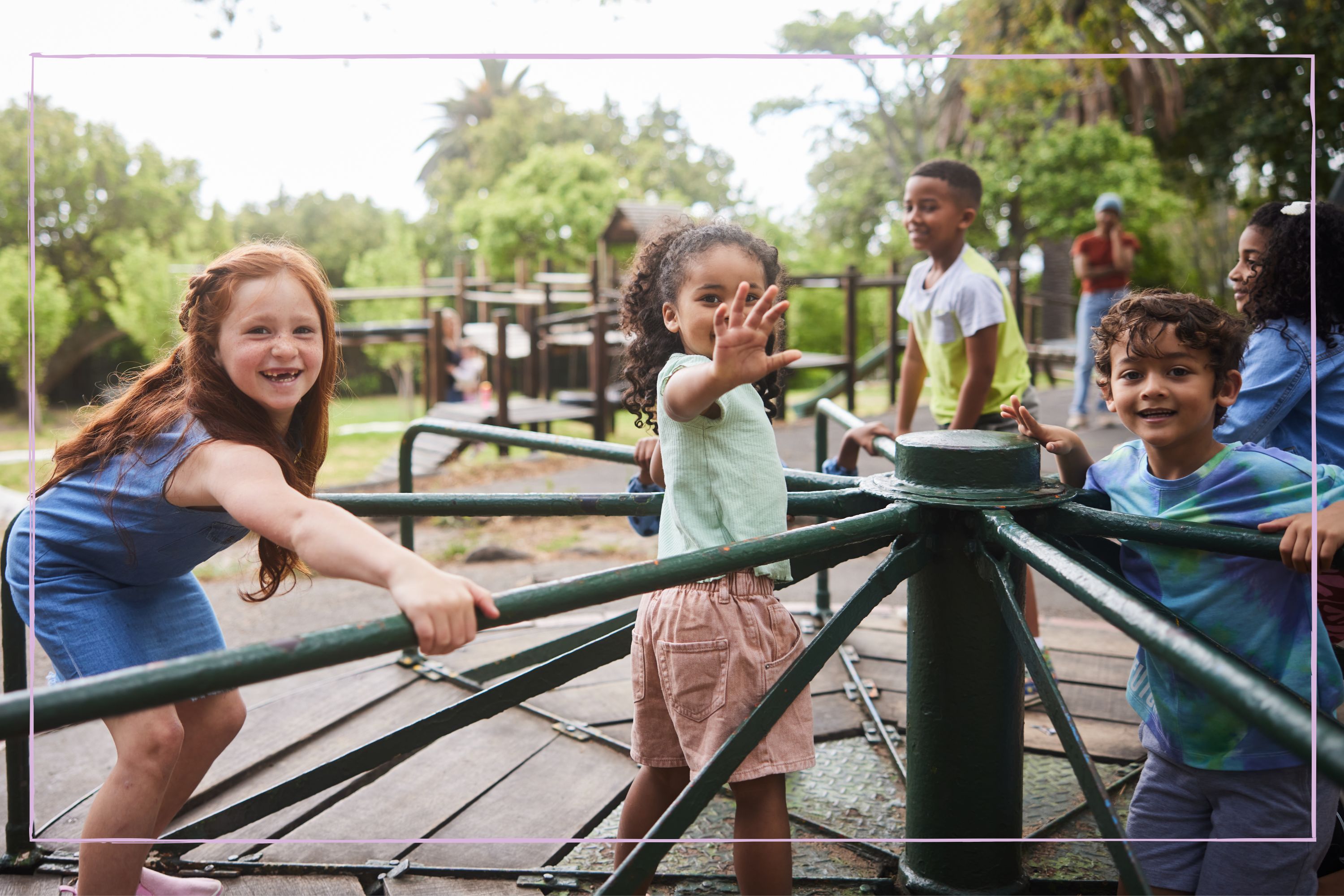
This variety ensures your child has a well-rounded play experience, contributing to their overall development and wellbeing.
6. Play throughout the day
Any everyday moment can be an opportunity for play. Let your little ones help with cooking by pretending to be chefs or turn bath time into a fun splashy adventure. Integrating play into daily routines encourages your child to find and create their own play opportunities throughout the day, helping them develop their imagination and creativity continuously.
7. Get them outside
Encourage your child to play in the garden or patio area as much as possible. The great outdoors offers endless possibilities for fun and exploration, even in a small space. Whether it’s digging in pots, searching for bugs, playing with water, or creating a make-believe world with natural elements, any size of outdoor space can be a fantastic spot for imaginative play.
Encourage your child to explore and discover on their own or with siblings, fostering independence and creativity as they figure out what to do next. This kind of play helps them develop problem-solving skills and an appreciation for nature.
8. Celebrate all effort
Praise your child’s efforts, this builds resilience and encourages them to try new things. Saying, "I love how hard you worked on that puzzle!", "You did a great job sharing your toys with your friend this afternoon", or "I’m impressed with how you built that tower all by yourself without it falling over" can go a long way and inspire them to try different ways to play.
9. Offer open-ended toys
I love toys that can be used in multiple ways, like building blocks, art supplies, and action figures. These toys grow with your child and encourage creative thinking and problem-solving. As a play researcher and child development expert some of my favourites are Bubble Play with Zing’s Glove-a-Bubble, £3.99 from Amazon, Geomag Recycled Plastic Construction Games, £35.99 from Amazon, and Galt Explorer Craft, £13.99 from Amazon which is great for encouraging learning through crafting.
10. Boredom is not the end of the world
It’s okay for kids to be bored sometimes! Boredom can spark creativity and lead to the most imaginative play. Let them figure out what to do next – you might be surprised at their inventiveness. Check out my article on how being bored might be the best thing for your child.
By following these tips, you can help your child develop essential play skills that will benefit them throughout their lives, but the next time you ask your child to go and play, remember they might need a little guidance at first. With your support, they'll soon be exploring and enjoying playtime independently, discovering new worlds and learning through their own creativity.
Like this? We have loads of play-related features. If you’ve noticed a decline in your kids’ playtime, try these expert-approved game ideas or perhaps the benefits of sensory play—this can highlight toys they forgot they had. And if you have Frozen fans, then check out our roundup of the best Disney Frozen toys.

Dr Amanda Gummer has a PhD in Neuropsychology, the Postgraduate Certificate in Higher Education and more than 20 years’ experience working with children and families. As such, she is renowned as an expert on all aspects of child development, including toys and play. In 2012, she founded The Good Play Guide, an independent, expert accreditation service for children’s products, including toys, apps and more.
